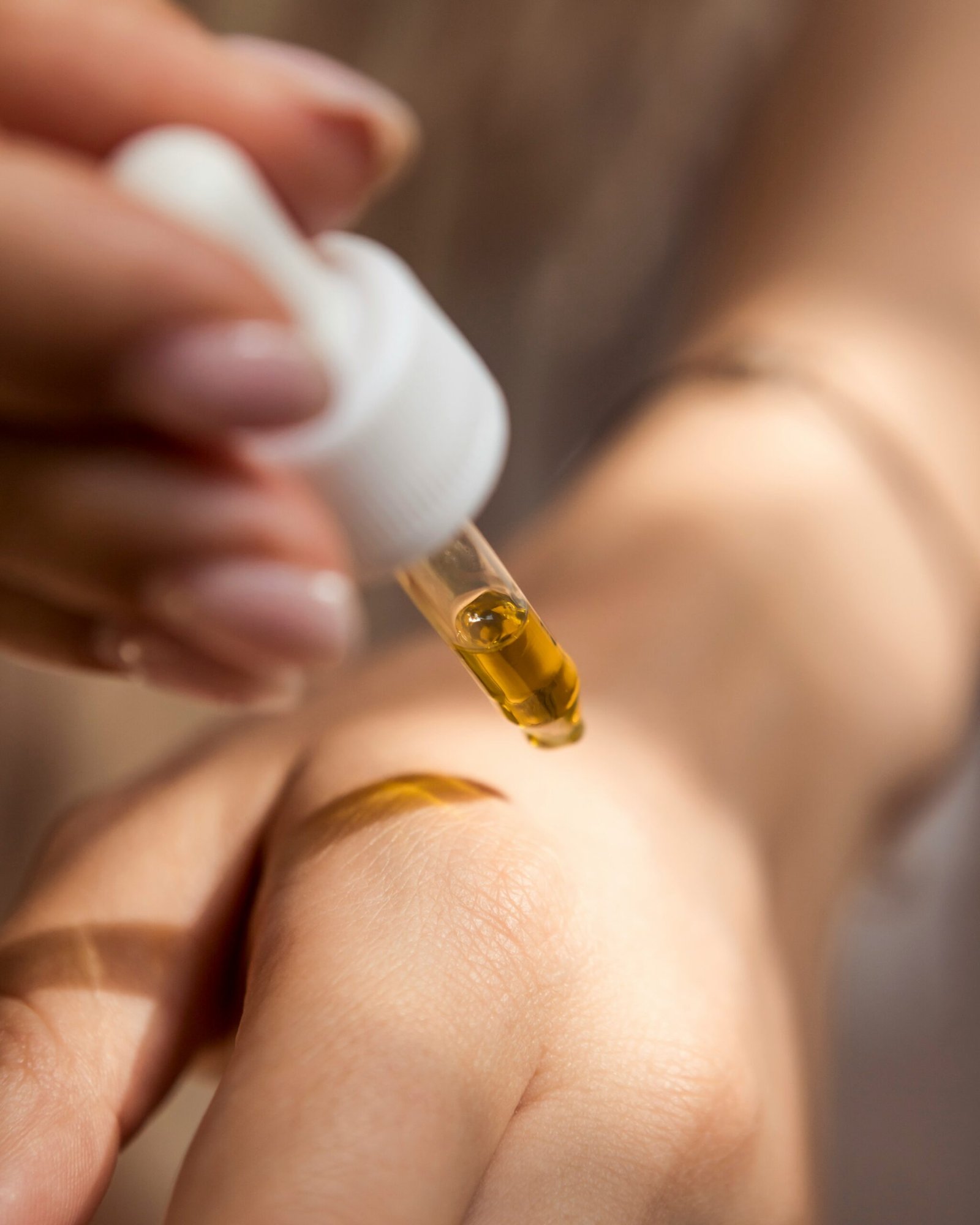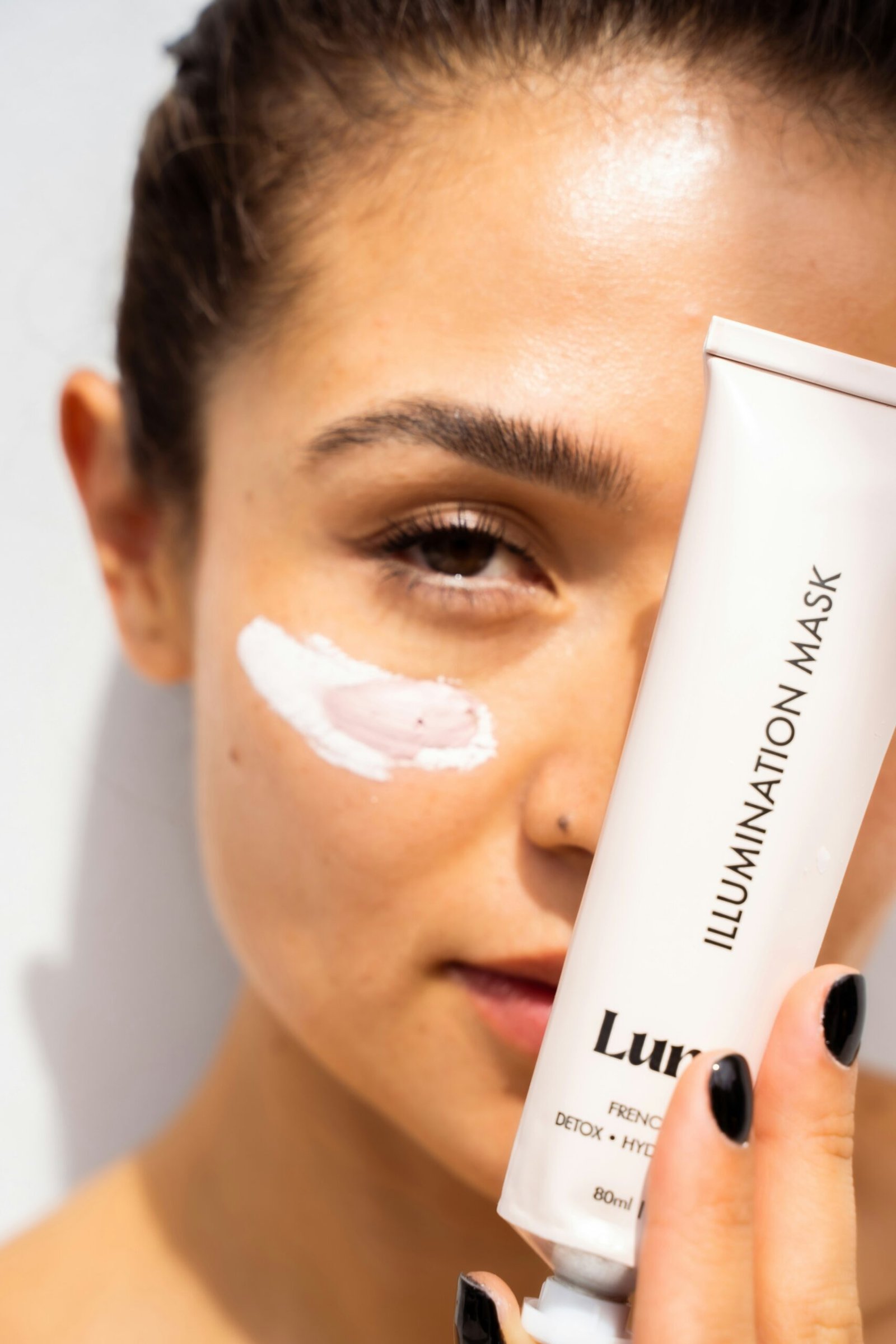Beyond the Surface: The Science of Skin Hydration
Skin hydration refers to the process of maintaining adequate water levels in the outermost layer of the skin, known as the stratum corneum. It is a critical factor for achieving healthy, radiant skin, influencing not just its appearance but also its functionality. Proper skin hydration is essential for the skin’s ability to act as a barrier, protecting against environmental aggressors, pathogens, and preventing excessive water loss.
The importance of skin hydration in the skincare industry cannot be overstated. Hydrated skin is often associated with plumpness, elasticity, and a youthful glow. Conversely, dehydrated skin can lead to a multitude of problems including dryness, flakiness, fine lines, and an overall dull appearance. Thus, understanding the science of skin hydration is vital for developing effective skincare routines and products.
There are several misconceptions surrounding skin hydration. One common myth is that only dry skin needs hydration; however, all skin types, including oily and combination skin, require adequate hydration to function optimally. Another misconception is that drinking water alone is sufficient to keep the skin hydrated. While water intake is crucial, external factors such as the use of moisturizers, serums, and other topical products play a significant role in maintaining skin hydration.
This section sets the stage for a deeper exploration into the science behind skin hydration. By delving into the mechanisms, benefits, and methods of achieving optimal skin hydration, we can better appreciate its importance and dispel common myths, leading to more informed decisions in skincare practices.
The Anatomy of Skin: Understanding Your Skin Layers
The skin, our body’s largest organ, is composed of three primary layers: the epidermis, dermis, and subcutaneous tissue. Each layer plays a crucial role in maintaining skin hydration and overall health.
The outermost layer, the epidermis, functions as the first line of defense against environmental aggressors. This layer is primarily composed of keratinocytes, which produce keratin – a protein that contributes to the skin’s protective barrier. The epidermis also contains lipids, which help to retain moisture and prevent water loss. Additionally, the stratum corneum, the outermost part of the epidermis, is essential in preventing dehydration by limiting transepidermal water loss (TEWL).
Beneath the epidermis lies the dermis, a thicker layer that houses blood vessels, nerve endings, and connective tissues. The dermis is rich in collagen and elastin, proteins that provide structure and elasticity to the skin. This layer also contains hyaluronic acid, a substance known for its remarkable ability to retain water, thereby contributing significantly to skin hydration. The dermal layer ensures that the skin remains supple and resilient, aiding in the maintenance of moisture levels.
The deepest layer, the subcutaneous tissue, primarily consists of fat and connective tissues. This layer acts as an insulator, helping to regulate body temperature and protect underlying muscles and bones. The subcutaneous tissue also serves as a reserve for water and nutrients, playing a secondary yet vital role in skin hydration.
Together, these layers form a complex system that protects against dehydration and environmental stressors. Natural barriers within the skin, such as lipids and proteins in the epidermis, and hydrophilic molecules like hyaluronic acid in the dermis, work synergistically to retain moisture. Understanding the anatomy of the skin and the specific functions of each layer highlights the importance of maintaining hydration for overall skin health.
Factors Affecting Skin Hydration
Skin hydration is influenced by a myriad of internal and external factors, each playing a significant role in maintaining or disrupting the skin’s natural moisture barrier. This barrier, composed primarily of lipids, is crucial for retaining moisture and protecting the skin from environmental aggressors. When this barrier is compromised, the skin becomes more susceptible to dryness, irritation, and various dermatological conditions.
Diet is a fundamental internal factor that impacts skin hydration. Consuming a balanced diet rich in essential fatty acids, vitamins, and antioxidants supports the integrity of the skin’s moisture barrier. Studies have shown that omega-3 fatty acids, found in fish and flaxseed, can enhance the skin’s hydration levels and improve its overall appearance. Conversely, a diet high in processed foods and low in nutrients can weaken the skin’s barrier function.
Climate and environmental conditions are significant external factors affecting skin hydration. In dry or cold climates, the air lacks sufficient moisture, leading to increased transepidermal water loss (TEWL). This phenomenon results in dehydrated skin and can exacerbate conditions like eczema. On the other hand, humid environments can help maintain skin hydration, although excessive humidity can sometimes lead to other skin issues like acne.
Lifestyle choices, such as smoking and alcohol consumption, also play a crucial role in skin hydration. Smoking reduces blood flow to the skin, impairs collagen production, and depletes the skin of essential nutrients, all of which contribute to a compromised moisture barrier. Similarly, excessive alcohol intake leads to dehydration, affecting the skin’s ability to retain moisture.
Skincare products are pivotal in either enhancing or disrupting the skin’s natural moisture barrier. Humectants like hyaluronic acid and glycerin attract moisture to the skin, while emollients like ceramides and fatty acids help to reinforce the barrier. However, products containing harsh chemicals, alcohol, or fragrances can strip the skin of its natural oils, leading to increased dryness and sensitivity.
Scientific insights have underscored the importance of maintaining a robust skin moisture barrier for overall skin health. Research continues to explore the complex interplay between various factors and their impact on skin hydration, highlighting the need for a holistic approach to skincare that considers both internal and external influences.
Hydration vs. Moisturization: What’s the Difference?
Understanding the distinction between skin hydration and moisturization is essential for effective skincare. Both terms are often used interchangeably, but they refer to different processes that contribute to skin health.
Hydration involves increasing the water content within the skin cells. Hydrating products are designed to penetrate deeply into the skin, delivering moisture directly to the cells. Ingredients commonly found in hydrating products include hyaluronic acid, glycerin, and aloe vera, which attract water from the environment and retain it within the skin’s layers. For instance, serums and essence formulations are often rich in these hydrating ingredients, providing a direct boost of moisture to the skin.
On the other hand, moisturization focuses on creating a barrier on the skin’s surface to prevent water loss. Moisturizing products work by forming a protective layer that seals in moisture and prevents it from evaporating. Ingredients such as oils, butters, and occlusives like petrolatum and dimethicone are prevalent in moisturizers. These substances create a barrier that locks in hydration, ensuring the skin remains soft and supple. Creams and lotions are typical examples of products that focus on moisturization, often containing a blend of emollients and occlusives to fortify the skin’s barrier function.
The synergy between hydration and moisturization is crucial for maintaining optimal skin health. While hydration ensures that the skin cells are plumped with water, moisturization ensures that this water is retained within the skin, preventing dehydration. In an effective skincare regimen, it’s beneficial to incorporate both hydrating and moisturizing products to address different layers and needs of the skin. For instance, a routine might include a hydrating serum followed by a moisturizing cream, ensuring comprehensive care that both infuses and seals in moisture.
In essence, while hydration and moisturization serve different purposes, they are both integral to maintaining healthy, radiant skin. Understanding their distinct roles allows for a more targeted and effective skincare approach, ensuring that the skin remains well-nourished, balanced, and resilient.
Key Ingredients for Optimal Skin Hydration
Achieving optimal skin hydration often hinges on the inclusion of scientifically-backed ingredients in one’s skincare regimen. Among these, hyaluronic acid, glycerin, ceramides, and aloe vera stand out for their efficacy.
Hyaluronic acid is a naturally occurring molecule in the skin, renowned for its unparalleled ability to retain moisture. Its structure allows it to hold up to 1,000 times its weight in water, making it a powerhouse for hydration. By drawing moisture from the environment into the skin, hyaluronic acid helps maintain a plump and youthful appearance. For best results, it can be incorporated into your routine through serums or moisturizers, ideally applied to damp skin to enhance absorption.
Glycerin, a humectant, functions similarly by attracting water from the air and deeper layers of the skin. It fortifies the skin barrier, ensuring that hydration is locked in. Glycerin is particularly beneficial in cleansers and lotions, where it helps to maintain the skin’s moisture levels even after washing.
Ceramides are lipids that make up over 50% of the skin’s composition. They create a protective layer that shields against environmental damage and prevents moisture loss. Ceramides are crucial for maintaining skin integrity and hydration, especially as their natural levels decrease with age. Incorporating ceramide-rich creams or serums can significantly improve skin hydration and resilience.
Aloe vera is celebrated for its soothing and hydrating properties. Rich in vitamins, minerals, and amino acids, it supports skin healing and moisture retention. Aloe vera gel or extracts can be seamlessly integrated into your routine through moisturizers or masks, providing a calming effect and hydration boost.
Incorporating these key ingredients into your daily skincare routine can significantly enhance skin hydration. Opt for products that combine these ingredients to maximize their synergistic effects, ensuring your skin remains well-hydrated and healthy.
The Role of Diet and Hydration
Maintaining optimal skin hydration goes beyond topical treatments; it is deeply intertwined with our dietary habits and water intake. The skin, being the body’s largest organ, reflects the overall health and hydration status of an individual. Consuming a balanced diet and ensuring adequate hydration are pivotal in promoting and sustaining healthy skin.
Drinking sufficient water is fundamental. Water aids in maintaining skin elasticity and suppleness, helping to prevent dryness and flakiness. It is recommended to drink at least eight glasses of water a day, though individual needs may vary based on factors like activity level and climate.
In addition to water, incorporating foods rich in omega-3 fatty acids can significantly enhance skin hydration. Omega-3 fatty acids, found in fatty fish such as salmon and mackerel, as well as in flaxseeds and walnuts, help to strengthen the skin’s barrier function, reducing moisture loss and inflammation.
Antioxidants play a crucial role in protecting the skin from environmental damage and oxidative stress. Foods high in antioxidants, such as berries, dark leafy greens, and nuts, can combat free radicals and support the skin’s repair mechanisms, thereby maintaining hydration and overall skin health.
Vitamins are also essential for skin hydration. Vitamin E, found in almonds, sunflower seeds, and avocados, helps to maintain the skin’s moisture balance and protect against UV damage. Vitamin C, abundant in citrus fruits, strawberries, and bell peppers, is vital for collagen production, which in turn supports skin structure and hydration.
Practical dietary tips for improving skin hydration include incorporating a variety of colorful fruits and vegetables, opting for whole grains over refined ones, and choosing lean proteins. Limiting the intake of processed foods, alcohol, and caffeine can also benefit skin hydration.
By focusing on a nutrient-rich diet and staying well-hydrated, one can significantly improve skin hydration from within, contributing to a healthier, more radiant complexion.
Skincare Routine for Hydrated Skin
Achieving optimal skin hydration requires a carefully curated skincare routine that addresses the needs of your specific skin type. Consistency and the use of appropriate products are paramount. Here’s a step-by-step guide to ensure your skin remains well-hydrated and healthy.
Step 1: Cleansing
Begin with a gentle cleanser that effectively removes dirt, oil, and impurities without stripping your skin’s natural moisture. Opt for hydrating cleansers that contain ingredients such as glycerin or hyaluronic acid. For dry skin, cream-based cleansers are ideal, while gel-based cleansers work well for oily or combination skin.
Step 2: Toning
A well-formulated toner can help balance your skin’s pH levels and prepare it for the subsequent steps. Hydrating toners containing rose water, aloe vera, or chamomile can soothe and replenish moisture. Avoid alcohol-based toners, as they can be drying and counterproductive to hydration.
Step 3: Serums
Serums are concentrated treatments that penetrate deeply into the skin to deliver active ingredients. Look for serums rich in hyaluronic acid, vitamin B5, and peptides, which are known for their hydrating properties. Apply the serum while your skin is still damp from the toner to enhance absorption.
Step 4: Moisturizers
Moisturizers are essential for sealing in hydration and protecting the skin barrier. Choose a moisturizer suited to your skin type: lightweight, non-comedogenic lotions for oily skin, and richer creams or balms for dry skin. Ingredients like ceramides, squalane, and shea butter can provide lasting hydration.
Step 5: Masks
Incorporate hydrating masks into your routine 1-2 times a week for an extra boost of moisture. Sheet masks infused with hyaluronic acid or overnight sleeping masks with ingredients like niacinamide can significantly enhance skin hydration. These masks provide intensive treatment and help maintain the skin’s moisture balance.
Consistency in following this routine is vital for maintaining hydrated skin. Additionally, always consider your skin type when selecting products to ensure they meet your unique hydration needs. By adhering to these steps, you will be well on your way to achieving and maintaining beautifully hydrated skin.
Common Myths About Skin Hydration
In the realm of skincare, numerous myths about skin hydration continue to circulate, often leading to ineffective routines and misunderstandings. One prevalent myth is that oily skin doesn’t need hydration. Contrary to this belief, all skin types, including oily skin, require proper hydration. The skin’s surface needs moisture to maintain its protective barrier and to function optimally. Dehydration can exacerbate oil production as the skin tries to compensate for the lack of moisture, potentially leading to clogged pores and breakouts.
Another widespread misconception is that drinking more water is all you need for hydrated skin. While adequate water intake is essential for overall health and can aid in skin hydration, it is not the sole solution. The skin’s outermost layer, known as the stratum corneum, relies on external hydration and the application of moisturizers to lock in moisture and maintain a healthy balance. Studies have shown that topical applications, such as humectants and emollients, play a crucial role in replenishing and retaining skin moisture.
Additionally, some believe that only dry skin needs moisturizing. This is a misconception, as all skin types benefit from moisturization. Proper hydration can improve skin elasticity, enhance barrier function, and provide a smoother complexion. It’s important to use products tailored to your skin type; for instance, lightweight, non-comedogenic moisturizers are ideal for oily skin, whereas richer formulations might be better suited for dry skin.
Scientific evidence and dermatological insights emphasize the importance of comprehensive skincare routines that incorporate both internal and external hydration strategies. By debunking these myths and understanding the science behind skin hydration, individuals can make informed choices to achieve healthier, more resilient skin.
Conclusion and Final Thoughts
Throughout this article, we have explored the intricate science behind skin hydration, shedding light on the essential processes that maintain our skin’s health and vitality. From understanding the skin’s structure to recognizing the pivotal role of moisturizers and humectants, the journey through the layers of skin hydration highlights the complexity and importance of maintaining optimal moisture levels.
Grasping the science behind skin hydration allows us to make more informed decisions about the products we use and the routines we follow. Proper hydration not only enhances the skin’s appearance but also its overall function, fortifying the skin barrier and protecting against environmental stressors. Recognizing the signs of dehydrated skin and addressing them with targeted treatments can prevent long-term damage and maintain a youthful, healthy complexion.
Practicing informed skincare is crucial. By choosing products with scientifically-backed ingredients and understanding their applications, we can tailor our routines to meet our skin’s unique needs. Whether it’s incorporating hydrating serums, using humectants, or ensuring adequate water intake, every step contributes to a well-rounded approach to skin hydration.
We encourage readers to consider the insights shared in this article and reflect on their skincare practices. By adopting a more knowledgeable and proactive approach, you can achieve better results and promote overall skin health. Share your experiences and tips on social media using the hashtags #BeyondTheSurface and #SkinHydrationScience. Your stories and insights can inspire others to embark on their journey towards healthier, more hydrated skin.
Share this content:



 Italiano
Italiano English
English Español
Español